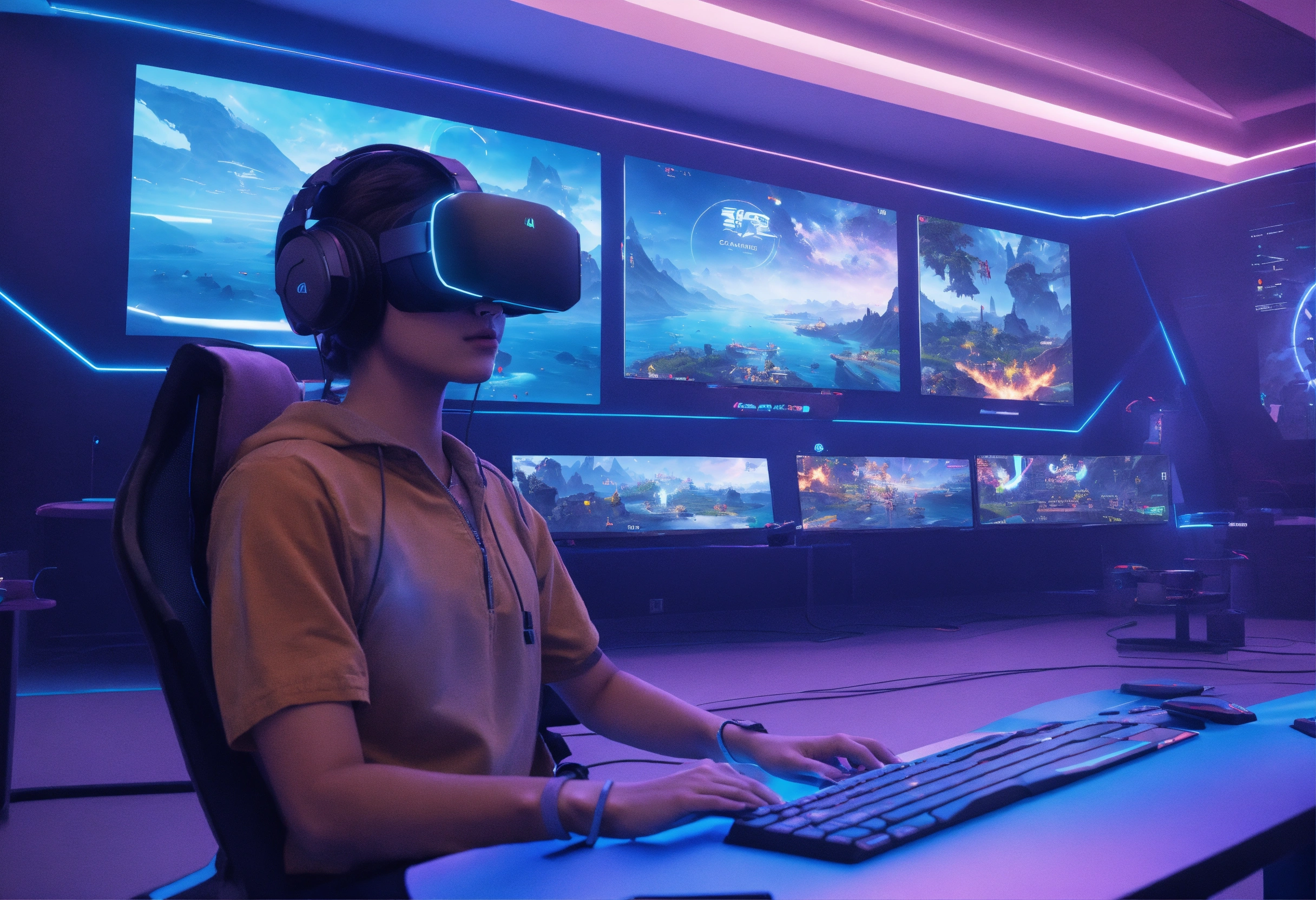Online Virtual Reality (VR) Game Development: Create Immersive Gaming Experiences and Make Money – Frequently Asked Questions (FAQ)
Virtual Reality (VR) isn’t just science fiction anymore—it’s here, and it’s changing the way we play, learn, and interact. From action-packed games to calming explorations, VR is opening up new frontiers in the gaming industry, and for developers, it’s an exciting opportunity to build next-level experiences and make real income online.
Whether you’re a beginner dreaming of designing your first immersive game or a coder curious about jumping into the VR space, one thing’s for sure: you’ve got questions. And that’s exactly what this blog is here for. We’ve gathered the most common and important questions around VR game development, so you can skip the confusion and start building with confidence.
Frequently Asked Questions
1. What is VR game development?
VR game development is the process of creating interactive games designed specifically for virtual reality headsets and environments.
2. Do I need to know coding to develop VR games?
While coding helps a lot (especially C# or C++), some platforms offer visual scripting tools like Unity’s Bolt or Unreal Engine’s Blueprints for non-coders.
3. Which software or engines are best for VR game development?
Unity and Unreal Engine are the two most popular engines for developing VR games due to their robust VR support and cross-platform compatibility.
4. What equipment do I need to start developing VR games?
You’ll need a VR-ready PC, a VR headset (like Oculus Quest, HTC Vive, or Valve Index), and a development environment like Unity or Unreal Engine.
5. Can I develop VR games as a solo developer?
Yes! Many indie developers create and publish VR games on their own, especially for platforms like Oculus Quest or SteamVR.
6. How do I monetize my VR games?
You can sell your games on platforms like Oculus Store, Steam, or PlayStation VR, or monetize with in-game purchases and subscription models.
7. Is there a big demand for VR games right now?
Yes, the VR gaming market is growing rapidly, especially with the rise of affordable and standalone headsets like Meta Quest 2 and 3.
8. Do VR games work on all headsets?
Not always—each headset has its own compatibility and platform requirements, so you may need to optimize or port your game for different devices.
9. How long does it take to develop a VR game?
It depends on the game's complexity—simple projects may take a few months, while larger games can take a year or more.
10. Is VR game development harder than traditional game development?
VR adds extra complexity with motion tracking, performance optimization, and immersive design, but with the right tools and learning, it's totally manageable.
11. What are some challenges in VR development?
Common challenges include motion sickness, performance optimization, and designing intuitive user interactions in 3D space.
12. Are there any free resources to learn VR game development?
Yes! Unity Learn, Unreal Engine tutorials, YouTube, Coursera, and even free courses on Udemy offer great starting points.
13. Can I make VR games for mobile devices?
Yes, mobile VR (like Oculus Quest) is very popular, and you can build optimized games specifically for standalone headsets without a PC.
14. How do I test my VR game during development?
You’ll need to test directly on a VR headset connected to your dev environment—Unity and Unreal both support real-time testing tools.
15. Can I work remotely as a VR game developer?
Absolutely! Many VR developers freelance or work with global teams remotely, making this a great career path for online income.
Final Thoughts: Dive Into VR and Start Building the Future of Gaming
Virtual Reality is no longer the future—it’s the now of gaming. Whether you're aiming to develop your own indie VR title or freelance for clients, the opportunity to create immersive experiences and earn online is wide open. All it takes is curiosity, creativity, and the willingness to learn something new.
So, if you’ve been on the fence about getting into VR game development, consider this your sign. Start exploring tools like Unity, experiment with simple mechanics, and work your way up. Your first VR game might just be the next big thing—and the world is ready to play.🕶️🎮✨


Post a Comment